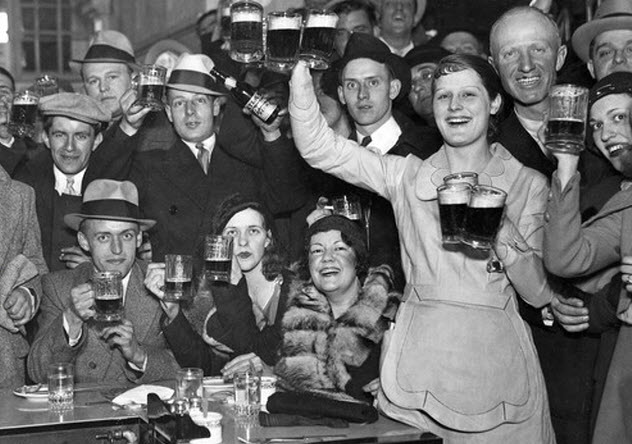When Americans started moving west due to the Manifest Destiny, not only were they gaining more territory, but they were also spreading their political and economic views. While this allowed for more opportunities with American life (i.e. more diverse crop production, smaller farms, increase in industry) it caused tension buildup between Americans and the natives.
There were several conflicts between the settlers and Native Americans with the primary issue being land. The settlers just assumed that they could take and do whatever with the land that they wanted, causing many natives to be driven out of their homes. The Americans were benefiting from taking more land, so good for them. However, they were expecting the Native Americans to assimilate into their culture, which of course was not fair to the natives.
2. Be Strategic.
If there was ever a conflict in history that included fighting, there were three key things we would need in order to become victorious: a cause, willingness, and resources. This relates to fighting today as well because without having those key elements there is virtually no way to win. For example, in WW1 America entered the war because when the conflict over in Europe had become a stalemate the US believed that they could help lead the allied powers to victory (cause). The willingness was covered by the people in America, with propaganda and wanting to stop the war and to help their allies. Lastly, the resources came from war bonds, conservation of food, and industries shifting to create more war metals. In the end, America and their allies were able to win the war.

On the opposite side, in the Vietnam War we lost the willingness of the people, so we only had two out of the three sides of the triangle. This caused the war to vicious turn and the US, unfortunately, lost another country to communism.

3. Keep moving Forward.
Immigrants from Europe saw America as the promised land. The "new" immigrants did not have a special set of skills so they were usually given the worse jobs and they also lived in tenements. Even so, they kept their head high and worked hard, allowing them to become apart of something bigger.

There were many captains of industries too. One major one was Andrew Carnegie who went from rags to riches. He was able to form the US Steel Company. He kept money in his company by using horizontal and vertical integration. Also, by using the Bessemer process he was able to save money.

4. Women aren't Weak.
During times of war, women's roles changed drastically. Instead of being a cute little housewife, they would become workers and fighters. They would work tirelessly in industries to supply the guns and tanks for the war. They would provide medical aid to troops fighting. They would donate their own goods to help the war cause. On top of all that, they were still able to take care of the children. Women are able to handle so much more than previously thought, so don't underestimate them.
5. Fun doesn't always equal Corrupt.
However back in the roaring 20's that's exactly what it meant. There was a huge social and cultural change in society including new styles of dancing, music, and art, improvements in technology, and a higher standard of living for some Americans. This era began with a celebration because WW1 had just ended. The 18th Amendment had passed yet most people drank alcohol anyway. There were speakeasies that the police were in on (cops had to have their fun!) and there was a higher rate of organized crime such as bootlegging.

Works Cited
http://www.conservapedia.com/American_frontier
https://www.poynter.org/news/today-media-history-news-reports-described-end-vietnam-war
http://www.history.com/topics/native-american-history/the-narragansett
https://www.timetoast.com/timelines/world-war-1-the-treaty-of-versailles-and-the-great-depression-d6597128-4676-47c8-be11-3180006685c6
https://i.ytimg.com/vi/47hwADd4wIw/maxresdefault.jpg
https://s-i.huffpost.com/gen/3955902/images/n-REFUGEES-628x314.jpg
https://upload.wikimedia.org/wikipedia/commons/thumb/b/b5/Andrew_Carnegie%2C_three-quarter_length_portrait%2C_seated%2C_facing_slightly_left%2C_1913.jpg/1200px-Andrew_Carnegie%2C_three-quarter_length_portrait%2C_seated%2C_facing_slightly_left%2C_1913.jpg
http://callisto.ggsrv.com/imgsrv/FastFetch/UBER2/ahwt_01_img0040
















